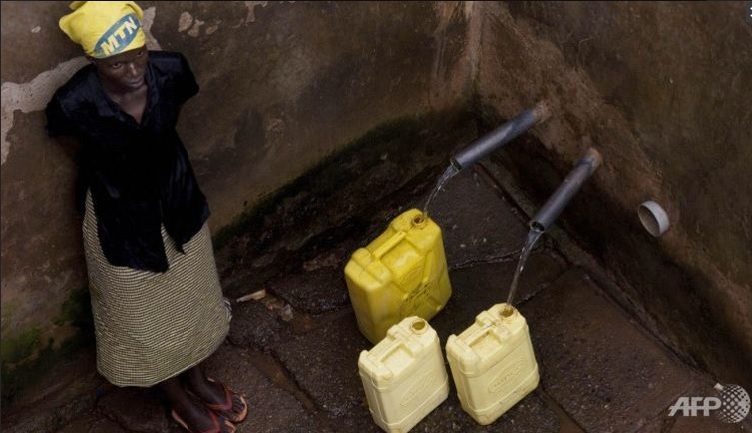Almost a tenth of the world's population does not have access to safe drinking water, and a third to the most basic sanitation.
The International Monetary Fund has now pinpointed one of the root causes - the widespread use of subsidies when governments artificially lower the cost of providing water.
David Lipton, First Deputy Managing Director at the International Monetary Fund, said: "What that means is, whoever buys the most, gains the most. And so whoever fills their swimming pool or plays at the golf course, or is a rich farmer who has hectares and hectares of land he is irrigating, if water is free, the people who use the most, gain the most."
That provides little incentive for the heavy users of water to cut down, thus depleting existing freshwater reserves.
When water is provided at below cost, there is often little money for maintenance or investment in better facilities and providing pipes for the poor.
Now, a group of experts at the non-profit organization The World Resources Institute wants a re-think. It says that 36 countries currently use over 80 per cent of their available water, and if no action is taken, demand could exceed supply by 2030.
Charles Iceland, Aqueduct Director at World Resources Institute, said: "It's certainly a recipe for a major disaster the first time around. Now, if you don't learn after the first time, which I'm afraid is that case, then ... as many times as you don't learn the lesson, is the number of disasters you'll experience."
Current shortages in places as diverse as Yemen and Southern California are already serving as warning signs ... but both experts say there is one developed country that is bucking the trend.
"There are places like Singapore that have tried to deal with this question of water policy directly, and have developed pricing policies to try to use water effectively and efficiently, that have invested in research to try to find ways to overcome the fact that they have a natural shortage of water. So it's clear that there's a pay-off even for advanced countries to thinking this subject through," said Mr. Lipton.
Mr. Iceland said: "That's when states have an opportunity to advance, when their survival depends on it, or when they go through a crisis where their survival's at stake. Singapore depends on that water for its survival."
"Now it exports its R&D to other countries who are facing problems, so it's made a virtue out of necessity. It's now obtaining economic returns on the research and development it's done to date."
So as the risks of acute water crises grow in the coming years, experts here in Washington say that Singapore is now ideally placed to provide global leadership in efforts to mitigate the worst impacts of water depletion.
Source: Channel News Asia | 21 June 2015














